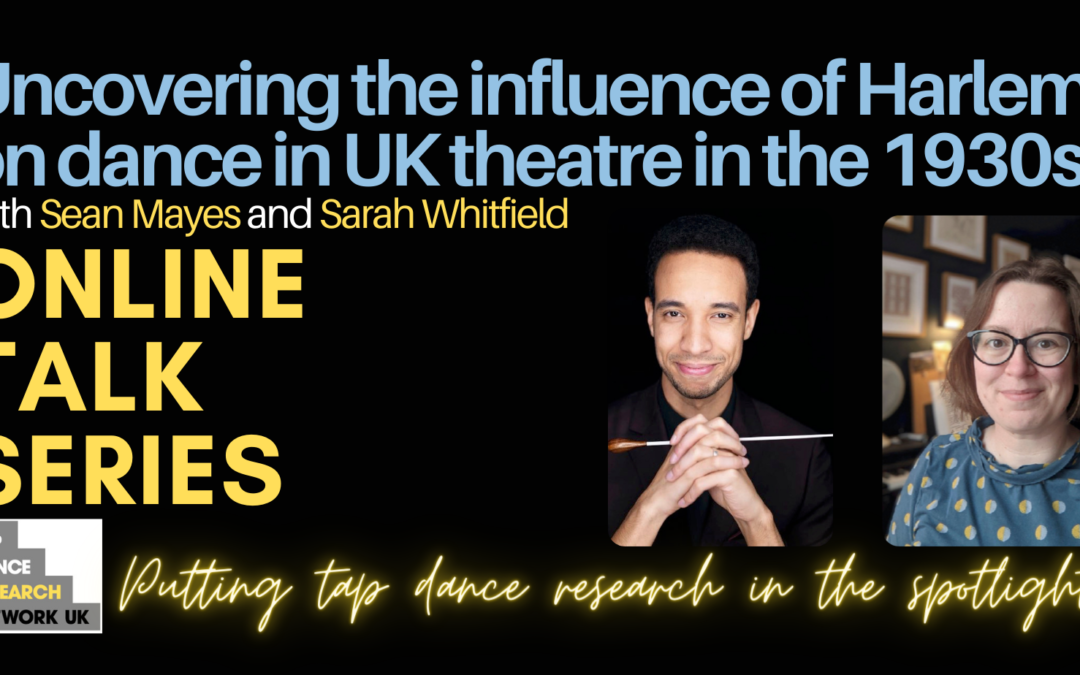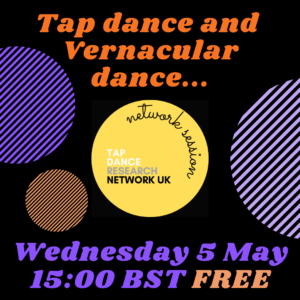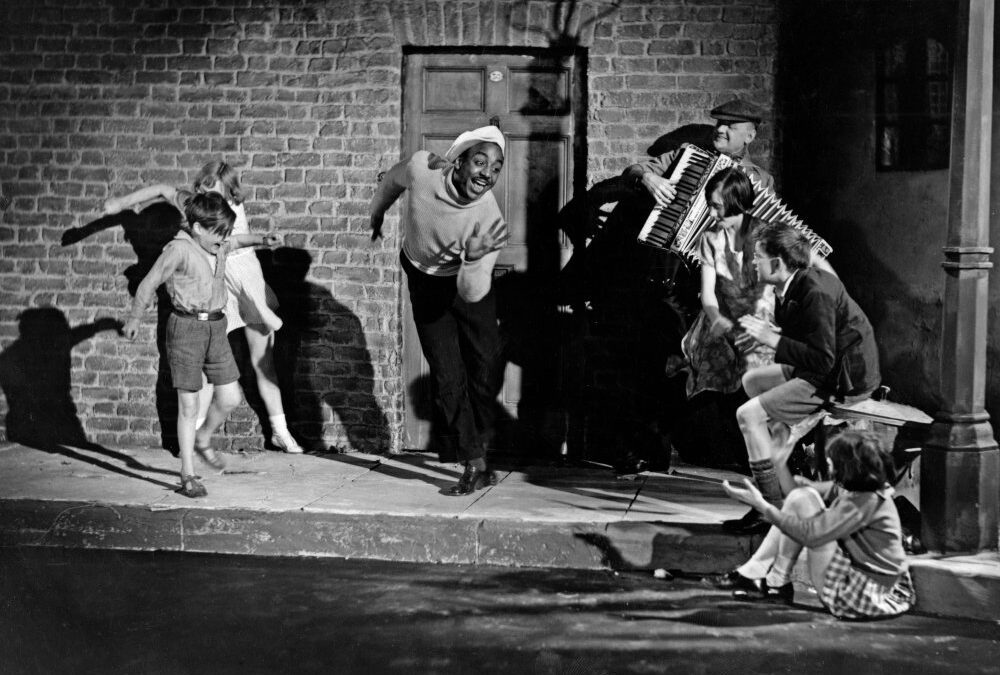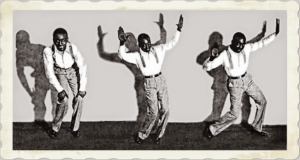
Apr 29, 2021
Tickets: £6 / £4 book here
Presentation by Sean Mayes and Sarah Whitfield followed by Q&A and open discussion.
Though some key Black practitioners like Louis Armstrong and Cab Calloway’s visits to the UK are reasonably well known, the influence of Black dancers, choreographers and practitioners in the 1930s is little discussed despite their extensive presence in theatre in the UK. Many African American dancers like the Nicholas Brothers, Nyas Berry and Peg-Leg Bates performed not only in the West End but across the UK. Another aspect of Harlem theatre’s influence on the UK has been little considered, through the work of choreographers like Buddy Bradley who reshaped not only tap in the UK but also jazz ballet, and Clarence Robinson (known for his work at the Cotton Club and Stormy Weather) who worked in the UK for a year transplanting revues. We explore the work of these key figures, and the influence of practitioners from both the Caribbean islands and the mainland Caribbean region who had visited and worked in Harlem in the 1920s like Ken ‘Snakehips’ Johnson (born in Guyana) and Sam Manning (born in Trinidad). Join us as we uncover how Harlem theatre reshaped British dance practices.
Sean and Sarah are co-authors of An Inconvenient Black History of British Musical Theatre 1900 – 1950.
Sean Mayes is an MD & conductor, his work has involved productions on stages across the United States, Canada and the United Kingdom. He is an active member of the Broadway community as an MD, orchestrator-arranger, vocal coach, accompanist & pit musician. In Spring 2019, Mr Mayes was Music Director and Conductor of the all-Canadian premiere of The Color Purple. He is based between New York City and Toronto.
Sarah K. Whitfield is a Senior Lecturer in Musical Theatre at the University of Wolverhampton. She writes about the history of musical theatre, and recovering the work that women and minoritised groups through archival research and digital humanities. She is based in the West Midlands, UK.

Feb 25, 2021
Members of the steering group will host these informal but structured sessions that are FREE and open to all. You can connect with other people that are interested, or involved in doing research around tap dance.
Hear from researchers and practitioners about what they are working on and have learned through their projects. Learn about different approaches to learning in the field and pick up valuable tips and insights to help you pursue your own tap dance learning. A great opportunity to ask questions, swap tips for researching and developing projects, share information about resources and opportunities.
The next few sessions will explore what happens when we consider tap dance from certain perspectives such as Folk tradition, vernacular and pop culture, visual music… What does each of these viewpoints offer and what is the relationship between them?
**Next Session**

15:00 BST | 10:00 ET | 16:00 CEST
Following on from our last session that explored what happens when we consider tap dance from the perspective of Folk tradition, we now continue the journey through vernacular dance, pop culture, and social dance.
We will discuss how tap dance relates to these ideas before taking a deeper dive into vernacular dance. We will ask how appreciating tap dance as vernacular dance informs the way we dance, learn, educate, promote, discuss and research in tap dance…
Jess Murray will introduce the topic before opening it up to a conversation where different perspectives and experiences can be shared.
Book a FREE ticket
Facebook event

Feb 25, 2021
Wednesday 17 March 2021 19:00 GMT
By Annette Walker with special guests.
Ticket price per event £6 full price/ £4 students, unwaged, low income. Book here
In the late 1920s and early 1930s, Buddy Bradley was coaching many stars of Broadway musicals, including Fred and Adele Astaire, Ruby Keeler, and Eleanor Powell. However despite being well known (and well paid) within show business he never received credit for choreographing a show with a white cast in America. In 1930 Buddy was invited to London to choreograph for Jessie Matthews’s show, Ever Green at the Aldephi Theatre for which he received his first choreographic credit. It was a great success for both Jessie and Buddy and in 1934 it was made into the first British musical film, Evergreen, launching him into the emerging English film industry. Buddy staged over thirty musical productions during the 1930s and choreographed a number of British musical films during his thirty-eight years in Britain.
There is little reference of Buddy’s creative work but researcher Annette Walker has sourced clips of his choreography from several British musical films, including an uncredited, rare glimpse of Buddy himself. There’ll be a presentation about Buddy’s life and work in America and Britain and a closer look at his style through film footage as well as a discussion about his wider influence on dance.

TDRN UK is a volunteer led, ‘non-profit’ community interest company and funds generated from ticket sales are used to cover overheads of running events. However, we are committed to making our events accessible to all and hold a number of tickets available free of charge to those unable to fund a ticket. Please contact us directly should you require one admin@tdrnuk.com.
Feb 5, 2021
We have no external event listings here at present but we often share things through our social media.
Have a look at our What’s On page for TDRN UK up-and-coming events.
Feb 5, 2021
NIERENBURG, G. T. (1985) About Tap
NIERENBURG, G. T. (1979) No Maps On My Taps
NEMR, A. (2014) Dancing around defined labels | Andrew Nemr | TEDxCERN (Online). Available from https://www.youtube.com/watch?time_continue=3&v=AVHKSYar9XI





